Despite the splash caused by self-publishing superstars such as Amanda Hocking and EL James, the average amount earned by DIY authors last year was just $10,000 (£6,375) – and half made less than $500.
With Hocking raking in sales of $2.5m, Fifty Shades of Grey's James signing up to a mainstream press for a six-figure advance and a slew of deals for other self-published successes, the sector is starting to look like a gold mine for would-be authors. But a survey of 1,007 self-published writers – one of the most comprehensive insights into the growing market to date – found that while a small percentage of authors were bringing in sums of $100,000-plus in 2011, average earnings were just $10,000 a year. This amount, however, is significantly skewed by the top earners, with less than 10% of self-publishing authors earning about 75% of the reported revenue and half of writers earning less than $500.
"The majority of the information out there is about the outliers, whose success is inspiring, but as we can now confirm bears scant resemblance to the experience of most authors," said Dave Cornford and Steven Lewis, who carried out the survey, published on Thursday, for the Taleist website.
Those who want to do best at self-publishing, they found, would be well advised to focus on romantic fiction. Romance authors earned 170% more than their peers, while authors in other genres fared much worse: science-fiction writers earned 38% of the $10,000 average, fantasy writers 32%, and literary fiction authors just 20% of the $10,000 average.
It's also best to be female, educated and in your early 40s: the survey's "top earners" – those who indicated they could live exclusively off their earnings – were 68% female, and 33% had a degree, compared to an average of 28%. High earners also dedicated more of their time to their writing, churning out 2,047 words a day on average, as compared to 1,557 for the rest of the sample.
With Jackie Collins announcing plans to self-publish a revised version of her novel The Bitch, even traditionally published authors are now dabbling in self-publishing, and the survey found this was to good effect: they earned 2.5 times more when self-publishing than did rejected authors or authors who went straight to self-publishing. This suggests, said Cornford and Lewis, that "traditional publishers are decent arbiters of quality" and that "the reading public finds, in these authors' work, the same high standard (or marketable writing, at least) that led publishers to choose them in the first place".
Authors who tick none of these boxes would be well advised to spend time and money on making a title look professional, the survey found: self-publishers who received help (paid or unpaid) with story editing, copy editing and proofreading made 13% more than the average; help with cover design upped earnings by a further 34%.
Half the respondents failed to reach $500 in royalties in 2011, and a quarter of the books are unlikely to cover the direct costs of production. "Sobering" news, wrote Cornford and Lewis. "Who'd come back for more?"
But money isn't always the primary goal for self-published writers, they discovered, with only 5% considering themselves "unsuccessful". The respondents were also still keen to continue self-publishing: nearly half plan to release more titles this year than they did last, and 24% have a whopping five or more works due for publication this year. This means, said Cornford and Lewis, that the 695 respondents who told them about their future publishing plans will be releasing about 48 new books between them for each week in 2012.
"It shouldn't have surprised me that 75% of the royalty pie is going to 10% of authors: that's life in many industries. If I'm being honest, though, I'd hoped self-publishing might be a bit more democratic. Someone asked me if I thought this might deter authors from self-publishing, but actors don't stop heading for Hollywood despite the odds against them," Lewis told the Guardian.
There's a clear link, he said, "between earnings and the amount of help, and therefore feedback, that an author is willing to take on board. Authors who engage editors, for instance, end up with more royalties. Readers are excited by having access to new voices, but they've not been waiting for unedited, unproofread and amateurish books. There's more to being a successful author than finding the 'Save and publish' button on Amazon, but there are a lot of authors who haven't realised that yet. In that sense, the low earnings were not surprising."
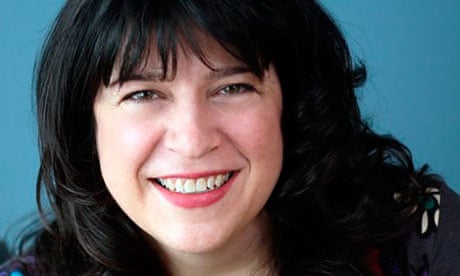
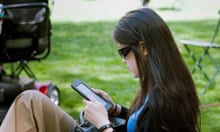
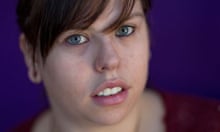
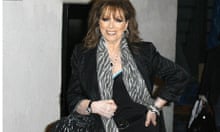
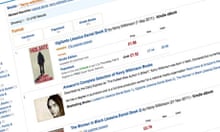
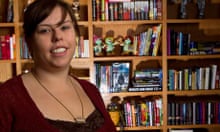
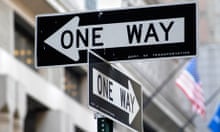
Comments (…)
Sign in or create your Guardian account to join the discussion